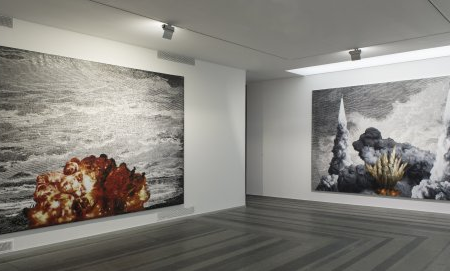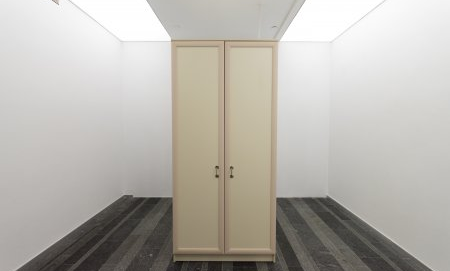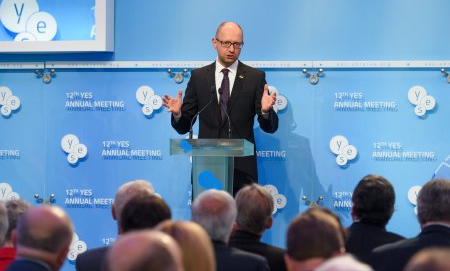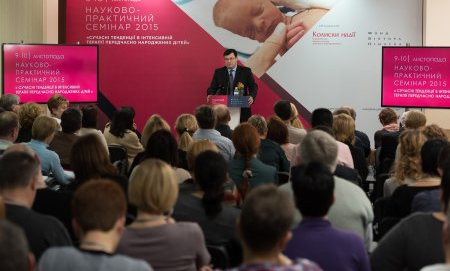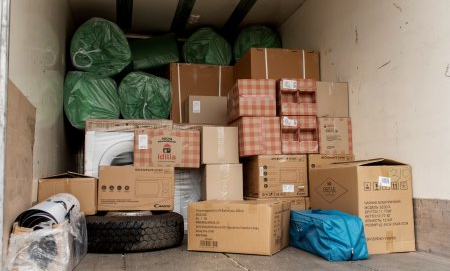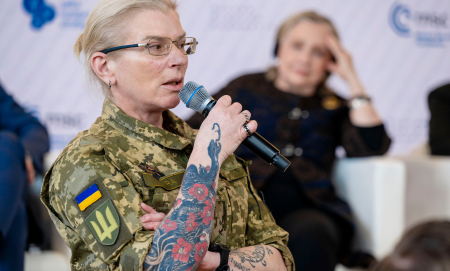News
Victor Pinchuk Foundation hosts Conversation between Olena Zelenska, and Metropolitan Archbishop Borys Gudziak in Davos on the occasion of WEF
On 17 January 2023, Victor Pinchuk Foundation hosted in Davos (Switzerland) a Conversation with Ukraine's first lady Olena Zelenska and Metropolitan Archbishop Borys Gudziak. The event was held as part of the Ukraine Is You project organized by the Victor Pinchuk Foundation and PinchukArtCentre in cooperation with the Office of the President of Ukraine. The project brings together global thinkers, experts and people from on the ground in Ukraine to discuss the assault on the country, Russian war crimes and also the hope and empowerment of defending freedom and independence.
The event was moderated by chief editor of The Economist, Zanny Minton Beddoes.
Introducing the speakers, host Victor Pinchuk said, "This conversation will be about what we are striving for, what is our goal - for me this is the most important question of the war."
Zanny Minton Beddoes invited the participants to share their thoughts on the future of Ukraine and opened the conversation by saying: “The perception of Ukraine internationally, forgive me for saying this, but it was perceived as someone chaotic and corrupt, has fundamentally shifted. Ukraine is now an exemplar, a moral exemplar for the world. And Ukrainian society, I think, is also changing, has changed and will change.”
Olena Zelenska spoke first and said that the world sees Ukraine differently now: “The world has come to know who Ukrainians are: that they are resilient, brave and kind. And this inspires the entire world. My goal is to see an inclusive, human-centric Ukraine.”
Borys Gudziak, in turn, said: “For me it’s about four values: God given human dignity, understanding the value of life and that life is sacred, solidarity, there are seven million internally displaced people in Ukraine, but you do not see people living on the street, the community has taken them in – this is amazing solidarity, subsidiarity, this means bringing decision making authority down to the lowest level – we see that in the Ukrainian army and, the common good – people see that Ukraine is fighting not only for itself, but for the common good of all.
“Ukraine is showing the world that we need to maintain our principles…I think that Ukraine’s message to the world is pointing out that there are morally important things - and the world is interested,” he noted.
The First Lady of Ukraine also raised the issue of mental health in the time of war and PTSD that Ukrainians will be going through when the war is over: “These consequences will have long-term effects, and unfortunately we must face this reality because we understand who our enemy is, and we must be prepared for a long haul. At present, no-one in Ukraine is living their normal life.”
Borys Gudziak contributed to this topic, sharing his thoughts on the role that church can play in providing psychological support during the war: “What are the answers? They are in the making. The new challenges are the trauma, orphans, amputees, psychological distress, destruction - all that is the result of evil.”
“In the first few pages of the Bible we see an illustration – Adam moves away from the life o of the gift to a life of the ultimate grab. Putin is making his ultimate grab, there is not enough for him. Eleven time zones are not enough. Russia is 28 times larger than Ukraine, and he needs the 29th part. How much can you eat? How much can you consume? That is evil, and this leads to genocide, this leads to war crimes – and the only way to heal is through patient love” he said.
Olena Zelenska explained how Ukraine’s perception of Russia changed since 24 February 2022: “We are in a situation where we cannot find any empathy for the enemy, which is quite natural I think… We hadn’t had as many nationalists before a full-scale war as we have today.” “Without the aggressor, the national sentiment, the national aspiration is not that strong. But now all our children are becoming patriotic.”
“They have killed any empathy, any friendly feeling we might have had towards them before, towards their people. And I cannot imagine how long, how many decades or even centuries it will take to heal these wounds and to bridge these gaps,” Ukraine’s first lady opined.
Borys Gudziak added: “There is a deep problem in Russia and with Russians. There is a deep pathology of imperialism. Russians believe they have the right to be an empire, it is part of their identity to believe they are naturally better than others.”
“There is a deep pathology in Russian culture, in Russian ballet, in Russian literature, in Russian schools, and it needs to be dealt with,” he stressed.
Speaking about women’s leadership in Ukraine during the war, Olena Zelenska said: “We don’t see any difference between the roles of men and women in Ukraine. Everyone contributes what he or she is capable of contributing. More than 30,000 woman volunteered to fight at the front line…and that’s totally their conscious choice. And a lot of men are now taking care of children, because their mothers are not around to do that. So it’s not a change of roles, it’s a testament of our living in a society of equal opportunities.”
In his closing remarks, Borys Gudziak called for more international support to Ukraine: “Get your leaders inspired and keep them inspired by encouraging them to visit Ukraine. Visit not only Lviv, but also Kyiv, Bucha, and, if possible, Kharkiv and the east. Once you have visited Ukraine, and seen for yourself, your resolve is strengthened further – the inspiration to help lasts for a long time.”
Olena Zelenska, in turn, warned against the world becoming ‘fatigued’ with Ukraine: “You have provided us with so much support, but if you stop now, that means that all that help was in vain. If your house in on fire, you do not stop putting the fire out when you are half-done.”













